Hot Out? Count The Number of Cricket Chirps
Can a cricket really tell you the temperature outside? Do fish know if it's going to be a cold winter? Check out this list of creatures that have a few things to tell us about the weather!
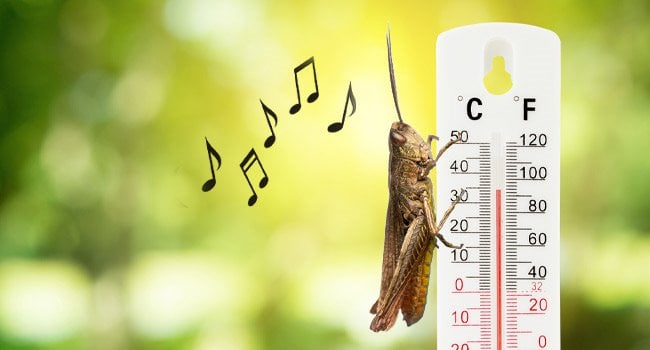
You’ve probably heard lore about animals that can predict the weather. Like the groundhog, for example, and Groundhog Day. Some of the folklore sayings, like, “if a cat sits with its back to the fire, frost and hard weather can be expected” may sound silly or hard to believe, but some are based on observations of animals that seem to sense more about our environment than we do. Here are just a few animal weather forecasters that have things to tell us about the weather.
Dangerous Weather
Animals seem to have a sixth sense for danger that people might do well to observe.
Hurricanes
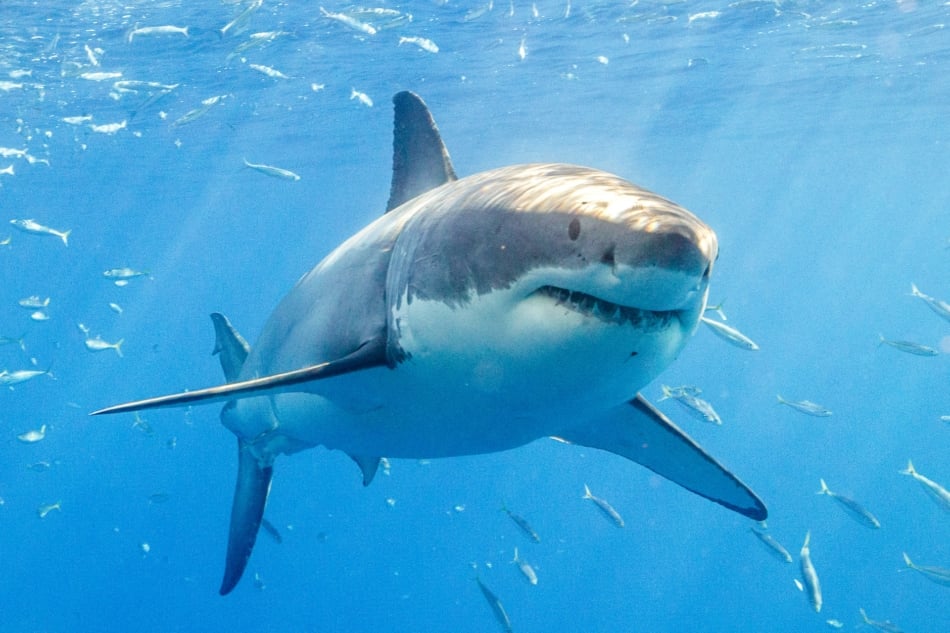
Before a hurricane, sharks that rarely leave their home waters will flee the path of the storm, responding to changes in barometric pressure, while seagulls and other birds instinctively fly inland. See what other animals are supposedly predictors of hurricanes.
Earthquakes
While not really “weather,” earthquakes are also something that animals are in tune to. You may have heard stories about animals and earthquakes: many are far more sensitive to vibrations in the ground than humans, and extreme changes in animal behavior can sometimes be an indicator that an earthquake is about to occur. After the 2005 tsunami in Sri Lanka, it was reported that very few animals were killed despite the massive loss of human life. Many of them were also acting strangely in the day before the tsunami hit. It seems likely that they sensed something coming and knew to flee to safety. A good rule is, if the animals are making a getaway, you probably should too.
Hot Weather
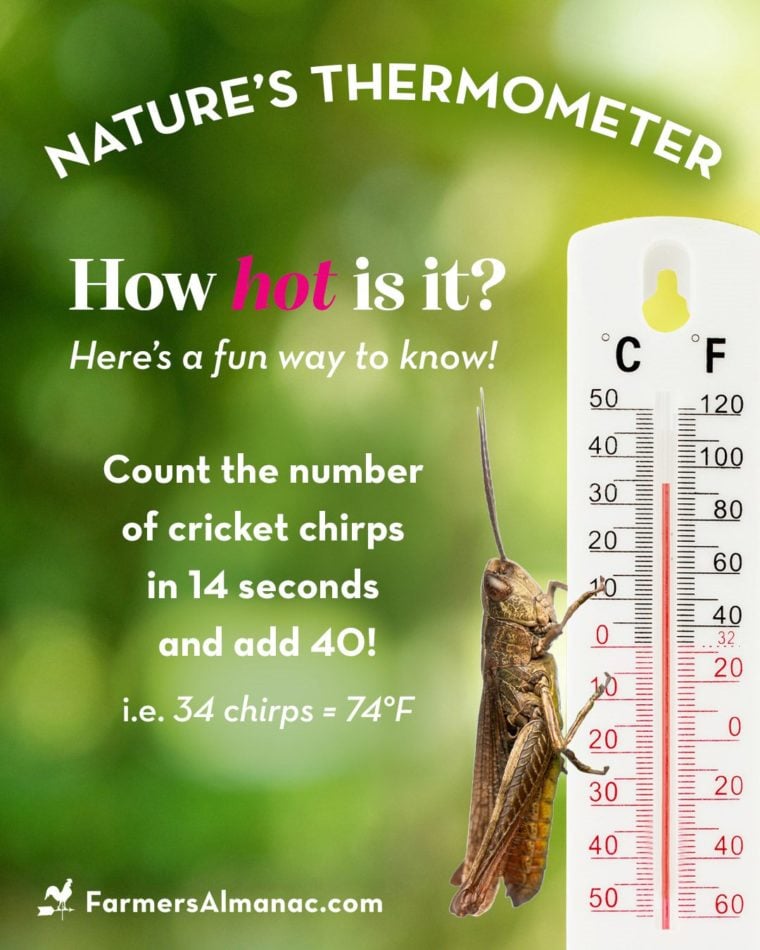
The sound of crickets chirping is a sure sign of summer, but did you know that it can also tell you how hot it is? Crickets are cold-blooded so when the temperature in the air changes, the cricket’s body temperature changes with it. As the temperature rises, the cricket’s metabolism increases, allowing the process that triggers the chirp-creating muscle contractions to happen more quickly. Frequent chirping is a sure sign that the heat is rising!
- To figure out the exact temperature in degrees Fahrenheit: count the number of chirps in 14 seconds, and add 40.
- To get Celsius temperature: count the number of chirps in 25 seconds, divide that by 3, and then add 4.
Storms
Do animals tell us when a storm is coming? Birds react to the drop in air pressure before a storm by flying low, and not flying at all an hour or so before the storm hits. Other animals behave strangely before a storm too–bats fly low and insects stay close to the ground, while wolves howl because the pressure change affects their ears.
What about cows laying down before it rains?
Early Freezes
Fishermen have noticed that in the fall, migrating fish come back early in years when there are early freezes, but they come out later than usual in years when lakes and rivers freeze late.
More animals that can predict the weather…
Enjoy the sound of crickets!
Join the Discussion
Have you ever tried to count a cricket’s chirps to forecast the weather?
Do you have a tried and true weather animal that you feel predicts the weather?
Related Articles
Are Cats Reliable Weather Forecasters?
Want to Know the Weather? Watch these animals.
How Well Do You Know Your Weather Lore Rhymes?
This article was published by the staff at Farmers' Almanac. Do you have a question or an idea for an article? Contact us!

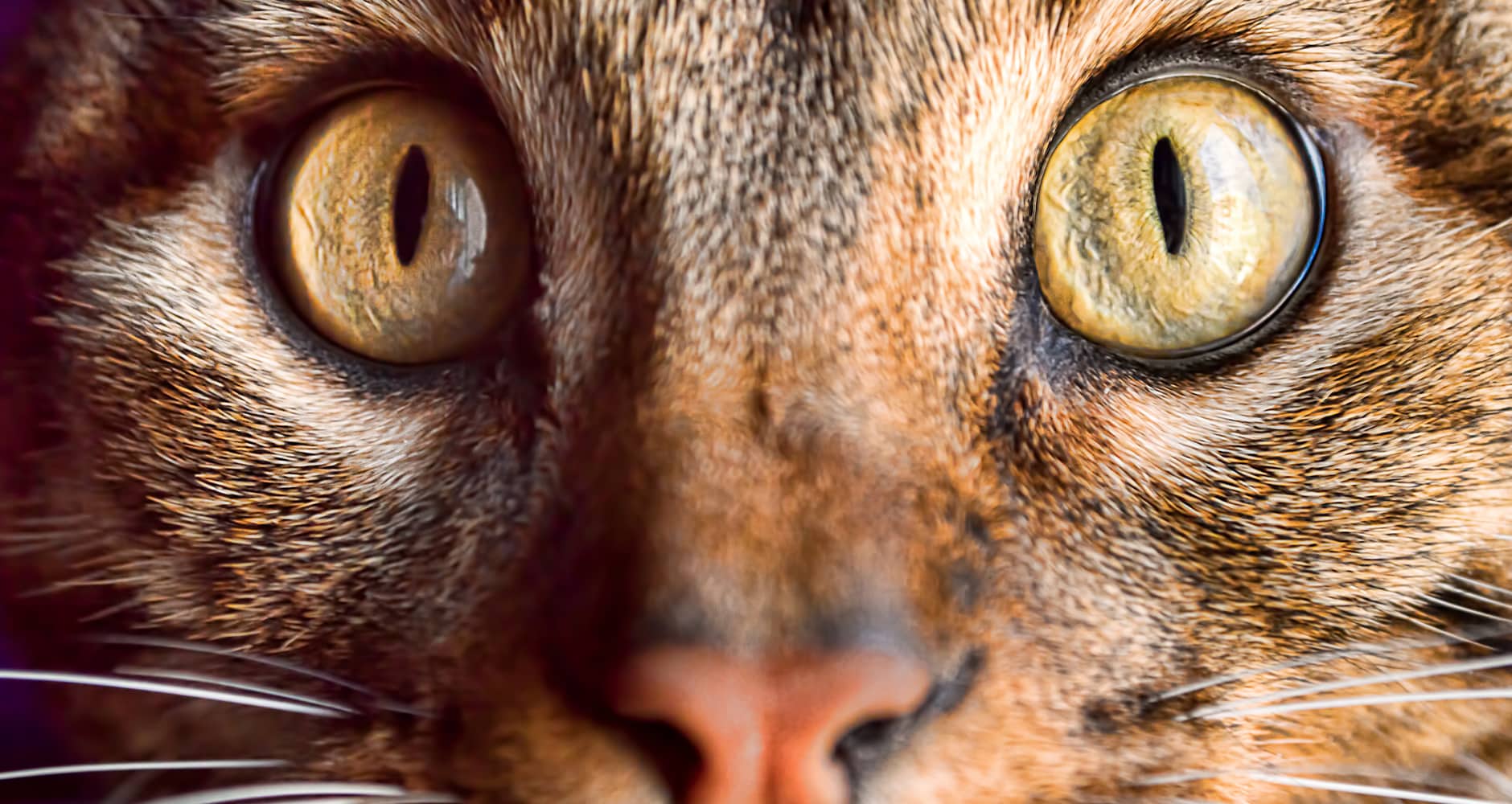

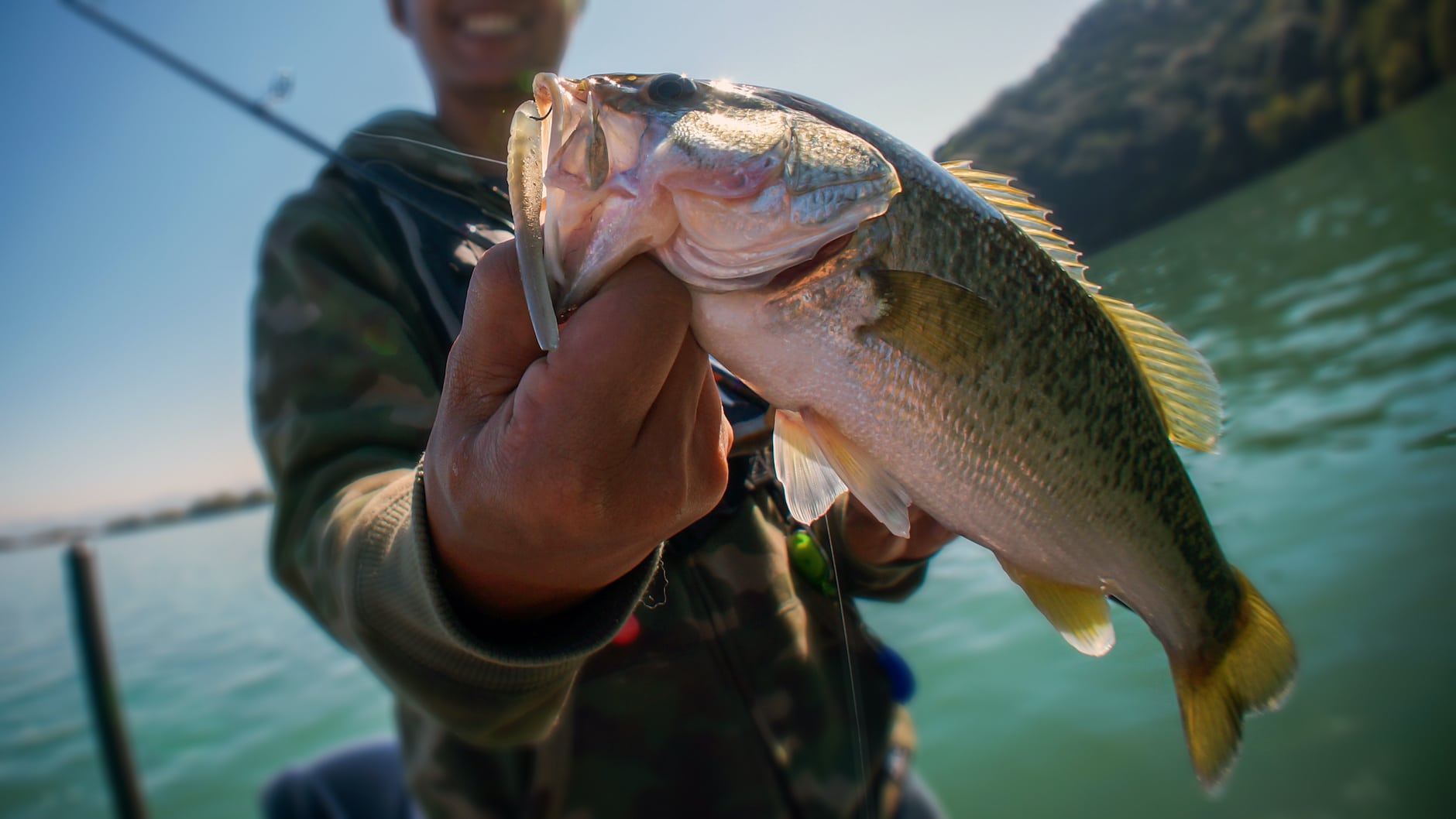


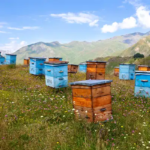


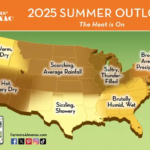
In summer monsoons and winter snows, our horses head to shelter about 10-15mins before major precipitation events. They ignore sprinkles, light rain, flurries or light snow. But when the big events are going to hit, the horses tell us.
When cattle bunch up into a corner of a fenced field it means storms.
I grew up in this one, 90 days from fog you get moisture. This is pretty accurate, have won many bets with this one
Living in an area that is known for triple digit degree summer weather certainly.does have the crickets chirping.
My question here is if anyone knows why the chirping carries on for minutes than silence for minutes followed by chirping again for the same period of time than silence again. Continues as such for some time.
9:30-10:00 at night.
April
how about if you HEAR NO CRICKETS when you normal used to?
Growing up in the country taught me a lot about the weather. I can predict it closer then any from where I live now being its a suburbam area. When its going to rain the air turns sweeter, when the sky is white and bright it’s going to snow, also a snow predictor is when the robins start singing in winter at night, although that doesn’t include cities where the continual lights knock out their body clocks. I’ve seen most of the others added already so will just leave it with those
Hello from the Appalachian foothills of Dahlonega, GA.
They say the number of times it fogs on the mountain in August is how many times it will snow that winter.
When the cows lay down, it means they are tired. When they all huddle under the shade of a large tree, it means the sun is really hot on their backs and they want some relief. When the cows all huddle together in a group at a corner of the pasture, it means it’s group therapy time. Even cows have problems!
This is for fishermen.I was told by a little old man up near Harlem, Ga. that he used to drive around to see if cows were laying down because if they were you might as well stay at home because fish was not biting. If they were up and moving, go fishing.
Well, I know for a fact that when you hear the Canadian geese flying overhead, it usually means fall is around the corner. When you hear them again in spring, it means warm weather and spring is just around the corner. I never really noticed it til I moved where I am living now. You know why geese just walk around certain places in the summer? Well, the geese lose their flight feathers during the summer while they are raising their young anyway. When they molt (lose feathers) during summer, when they grow all their feathers back and their family is all grown up. It is time for them to take flight, hence fall time and they all fly South for the winter. I am guessing they go south? Humm?